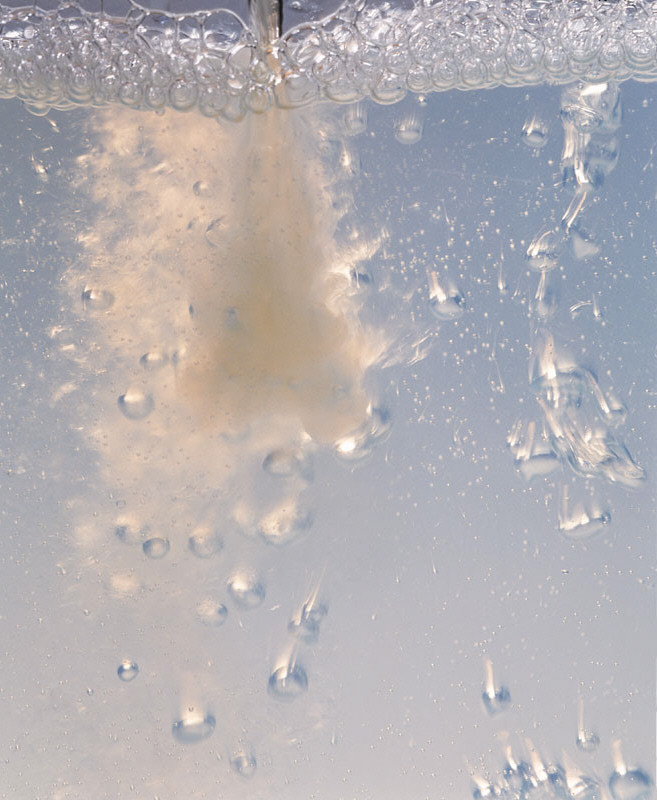Defoamers: Essential Tools for Enhancing Efficiency in Cleaning Products
Defoamers: Essential Tools for Enhancing Efficiency in Cleaning Products
Blog Article
The Role of Defoamers in Enhancing Item High Quality and Performance
Defoamers serve as crucial additives that mitigate this concern, guaranteeing smoother production process while boosting the practical and visual features of the final products. The selection of the proper defoamer can be essential to achieving optimal outcomes, increasing vital inquiries about formulation compatibility and performance metrics that merit further exploration.
Comprehending Defoamers
Comprehending the function of defoamers is essential for maintaining item quality across various industries. Defoamers are chemical ingredients created to lower and prevent the formation of foam in fluid systems, which can negatively impact processes such as mixing, loading, and surface stress. Frothing can bring about inadequacies, item defects, and endangered visual allure, making defoamers a crucial element in producing operations.
In industrial applications, defoamers aid to improve item uniformity and stability. The efficient use of defoamers not just makes sure smoother production procedures but additionally contributes to premium product efficiency.
Furthermore, the option and formula of a defoamer must line up with specific application requirements, such as compatibility with various other components, effectiveness under varying temperature level and pH problems, and prospective governing restrictions. Inevitably, understanding defoamers' functions and their relevance in different solutions is vital for optimizing production and ensuring the finest quality final result.
Sorts Of Defoamers
Defoamers can be classified into a number of kinds based on their composition and system of activity. The key kinds consist of silicone-based, non-silicone natural, and not natural defoamers.
Silicone-based defoamers are among one of the most efficient, largely as a result of their capability to spread promptly on the fluid surface and interfere with foam development. Their one-of-a-kind chemical structure enables premium stability, making them appropriate for high-temperature applications and settings with differing pH degrees.
Non-silicone natural defoamers, frequently composed of fatty acids or all-natural oils, are valued for their biodegradability and lower toxicity. These are generally used in food and beverage applications where security and ecological impact are extremely important.
Not natural defoamers, that include materials like talc or calcium carbonate, act by enhancing the density of the liquid, therefore lowering foam security. They are often made use of in commercial processes where compatibility with various other products is not an issue.
Each kind of defoamer has unique advantages and restrictions, permitting customized services depending on the particular lathering issues encountered in numerous applications. Comprehending these distinctions is crucial for enhancing efficiency and attaining preferred product quality.
Applications Throughout Industries
Various markets leverage defoamers to boost product quality and operational performance. In the food and beverage market, defoamers are crucial in procedures such as brewing and dairy products production to stop foam development, which can result in inadequacies and product incongruity. By regulating foam, manufacturers can guarantee far better return and a much more consistent product.
In the pharmaceutical sector, defoamers play a crucial role in the formula of liquid drugs, where too much foam can restrain mixing and accurate dosing. Their use assists keep the stability of the formulas and helps with smoother manufacturing processes.
The paint and finishes market likewise relies upon defoamers to improve the performance of items during application. By reducing foam, these additives ensure a smoother coating and enhance the aesthetic top qualities of the last item.
Benefits of Using Defoamers
While the application of defoamers varies across industries, their advantages continually boost item quality and procedure performance. One substantial benefit is the reduction of foam development during producing procedures, which can otherwise result in production delays and incongruities in product top quality. By minimizing foam, defoamers allow a smoother flow of materials, facilitating extra effective operations and decreasing the likelihood of devices malfunctions.
In addition, using defoamers can boost the look and structure of last items. In markets such as finishes, paints, and food processing, extreme foam can jeopardize the visual aesthetic appeals and total quality, while the appropriate defoamer application makes certain a consistent finish and preferable qualities. Defoamers can add to cost financial savings by lowering waste throughout manufacturing and enhancing the usage of raw materials.

Choosing the Right Defoamer
Picking the right defoamer is vital for maximizing production procedures and ensuring product high quality. The option of defoamer influences not just the effectiveness of foam control however also the total efficiency qualities of the final item. Elements to think about consist of the kind of application, the chemistry of the formulation, and the environmental problems under which the item will be used.
Various sectors may call for specific defoamer types, such as silicone-based, organic, or polymeric defoamers. Recognizing the compatibility of the defoamer with the primary ingredients is important to avoid adverse responses that might endanger item honesty. Additionally, the defoamer's efficiency in numerous temperature levels and pH degrees must be evaluated to guarantee constant performance.
Testing the defoamer in small-scale applications can give beneficial understandings right into its performance and suitability. you can try these out Factor to consider of governing conformity, especially in food, pharmaceuticals, and cosmetics, is vital in picking a defoamer. Ultimately, a complete evaluation of these aspects will bring about the selection of a defoamer that not just manages foam efficiently however also improves the quality and efficiency of the end product.
Final Thought

In conclusion, defoamers are necessary additives that dramatically boost item top quality and performance throughout numerous industries. The critical selection and application of defoamers lead to set you back financial savings, maximized source use, and increased consumer complete satisfaction.
Frothing can lead to inefficiencies, item problems, and endangered aesthetic charm, making defoamers a crucial component in manufacturing operations.

Report this page